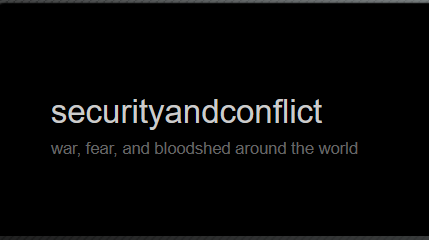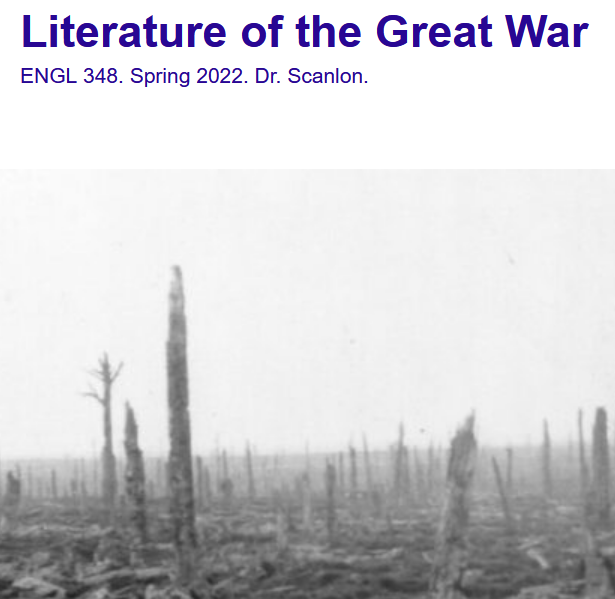A blog is an online journaling or communication tool to which new entries, or ‘posts’ are regularly added. In a teaching context, a blog can serve as a simple website showcasing student work or can take advantage of characteristics that are unique to the blog medium, such as comments, tags, categories. Blogs are built to display content in dynamic ways: they are perhaps most often displayed chronologically, but they can just as easily be organized and displayed based on author, month, category or tag. As a teaching tool, blogs can provide an alternative to the perhaps more formal term paper, can foster a sense of learning community, and provide a platform for project-based learning.
Why might you want to create a web assignment?
- Provide opportunities for students to demonstrate what they know and to make curatorial decisions about how to convey that information
- Give students the opportunity to write for new audiences. Writing for a public audience is a very different experience than writing for an audience of one’s peers or writing specifically for the instructor
- Provide students a reflective opportunity to share what they’ve been learning or how they are accomplishing a large scale project through the semester
- Developing a sense of a shared learning community in a class
Designing & Implementing
There are many different kinds of blog assignments below are some examples. Some of these can be used in conjunction with larger web projects. For example a student keeps a personal process blog while working in a group to create a larger research site.
Process/Reflection Blog
A blog where a student will keep a public record of their process working through a project or their learning. This can be a more informal assignment where students are wrestling with ideas.
Scholarly Commentary
A blog where students will curate, summarize, and reflect on articles of relevance to the class creating a repository of literature around a particular topic.
Popular Communication Site
A site that is intended to appeal to and reach a wide audience. Examples of this can be to communicate scientific findings, increase awareness around a social issues, or to provide a showcase of a physical art installation.
Scale
While each blogging assignment is different. Here are some things you’ll want to consider:
- Frequency of Posting
- Length of Post
- Amount of Research for the Post
Accessibility
It is important to consider accessibility in any digital project. Especially when creating publicly facing websites that aim to serve all manner of people who may interact with the site, the importance of accessibility should be highly emphasized. We recommend checking out our Accessible Web Design guide for some considerations.
Privacy, Permissions, Sustainability
When students work on the open web you’ll want to have conversations with them about privacy and gain permissions when it is applicable.
Privacy
It is important to discuss how and where a student’s name may be displayed on the web. Use of a pseudonym may be desired for students who do not want their name publicly associated with what they are writing. Applications like WordPress give a user the ability to change their display name.
Sample Syllabus Language
This course includes at least one online, public digital project. The work you create as part of this project may be shared across a variety of public platforms and remain online indefinitely. If you would like to remain anonymous, I encourage you to use a pseudonym and think carefully before publishing information that could identify you. If you have concerns about publishing work in an online, public digital project, please contact me as soon as possible.
Permissions
When creating digital projects on the open web that does not allow students to edit or delete their contributions in the future it is important to gain permission from students to use their work going forward.
Sustainability
There could be work that your students are creating that you intend to outlive the class. Since web technology is continually updating web projects that are intended to live beyond the life of the class need special consideration and planning to determine how and when projects will be maintained, updated, and sunsetted. We encourage you to work with Digital Learning Support to determine a plan if your goal is to maintain a project long-term.
Many of the grading criteria you might use for a “traditional” project still hold true for a digital assignment. If you already have criteria you are comfortable with, great! Since the variety of web assignments can vary so greatly, grading criteria should be considered on a case by case basis. For simple assignments you may grade on completion, but for more complex assignment you may want a rubric. Below are some guiding questions that may help you build a rubric for an assignment:
Guiding Questions
- Does the student address the prompt and fulfill the assignment effectively?
- Does the student think creatively?
- Does the student clearly state their argument, or thesis?
- Is the work organized and clear to navigate?
- Do the visual elements facilitate communication of the thesis?
- Has the student cited sources? Are sources high-quality and support the thesis?
- If graphic, image, sound, or video elements are used did they use royalty free or open-license? Does the student credit the creator?
- Has the student included alt text, descriptive links, headings, or otherwise endeavored to make the project accessible?
Tool Recommendations
The University of Mary Washington offers two free website building platforms – Sites@UMW and Domain of One’s Own. Each platform is available to all students, faculty and staff, and can support different needs and types of projects. We’d highly recommend that you consider using these platforms because we have years of experience and are able to robustly support the faculty, students, and the projects created with them.
Offer Support
Make sure your students are aware that they have many options for support for digital assignments.
DKC Class Visits
Consider having the Digital Knowledge Center visit your class to introduce tools and best practices for your assignment. This can go a long way in helping your students get off on the right foot. Visits can be tailored to the needs of your class.
DKC Appointments
If students run into issues, they can book appointments with a Digital Knowledge Center consultant to help get them unstuck.
DKC Online Guides
The Digital Knowledge Center maintains online guides on many tools for digital projects, including “Getting Started” best practices for audio, video, graphic design, and website-building projects.
Examples

Security and Conflict
A site that curates articles in the news around security and conflict. Contains over 10 years worth of student summaries.

Literature of the Great War
A blog dedicated to students sharing their learning and interpretations of the course material. This includes projects where students have recorded themselves reading poet

Title for This Block
A blog dedicated to students sharing their learning and interpretations of the course material. This includes projects where students have recorded themselves reading poet